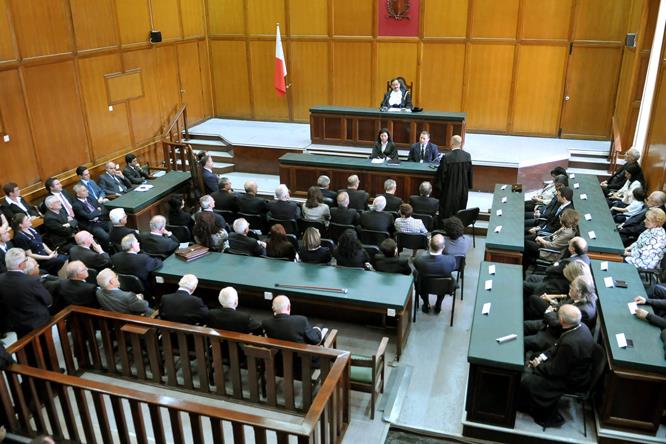There are three videos, two of which make up one set. The latter were filmed by two friends while on holiday in Thailand. The clips, filmed by one of the men, show the second engaging in sexual acts with a Thai woman, presumably a prostitute.
The videos have been sent and received by thousands, mostly via the Whatsapp mobile messaging service and Facebook messenger. They have gained huge popularity mostly because of the colourful phrases used by the men, which include ‘shower time’ and ‘imliha bro.’ Those same phrases have even been used in an online advert by a popular burger joint.
The third video is more graphic. It shows a masked man addressing an unknown person while performing sexual acts with a woman. Although the footage is very grainy, it is very explicit, unlike the first two clips. The man takes off his mask at the very end of the 40-second clip but his face is not easily recognisable. Like many others, the interviewee received the clips via Whatsapp and Facebook. We wanted to find out whether people were actually committing a crime when receiving and indeed sending these videos to others.
Lawyer Kathleen Grima says the starting point is whether the footage would be considered as being pornographic or indecent by a court. “It is subject to interpretation. Although, in my opinion, the third video is more likely to be deemed as such since it is more likely to be considered as obscene, having a tendency to deprave and corrupt .” On the other hand, courts have declared that material which might be shocking and disgusting does not necessarily and automatically mean that it is obscene or pornographic.

What the law says on pornography
According to a law drafted in 1975 (which is currently under review), material can be deemed to be pornographic and obscene if “its dominant characteristic is the exploitation of, or undue emphasis on, sex, or any of the following subjects, namely crime, horror, cruelty and violence, or it directly or indirectly advertises or gives information on any article considered to be pornographic or obscene under these regulations.”
According to Article 208 of the Criminal Code, “whosoever, for gain, or for distribution, or for display in a public place or in a place accessible to the public, manufactures, prints or otherwise makes, or introduces into Malta, or acquires, keeps, puts in circulation or exports, any pornographic or obscene print, painting, photograph, film, book, card or writing, or any other pornographic or obscene article whatsoever, whether similar to the above or not, shall, on conviction, be liable to imprisonment for a term from six to twelve months or to a fine (multa) of not less than one thousand euro (1,000) and not more than three thousand euro (3,000), or to both such imprisonment and fine.”

Not all that looks like porn is porn
“Assuming that these videos would be considered to be pornographic or obscene by the courts, it would be illegal to send them to anyone as that could be classified as “distribution” which is prohibited by law,” Dr Grima says.
But past cases have proven that not everything that might seem to be pornographic is in fact so. Dr Grima recalls a criminal case that had been instituted against author Alex Vella Gera and Mark Camilleri who was, at the time, editor of a student magazine. The case revolved around an article, called ‘Li Tkisser Sewwi,’ which was authored by Vella Gera and published in Realta`, a pamphlet which was distributed at the university and the junior college. The police had taken both to court because the article included explicit descriptions of sexual acts. But a court had acquitted them, saying that the law did not provide clear definitions of 'pornography' and 'obscenity', and that the prosecution had failed to prove beyond reasonable doubt that Article 208 of the Criminal Code had been breached.The court also pointed out that public morality changes with time and what might have offended public morality twenty or thirty years ago does not necessarily offend public morality nowadays.
“There are other examples. Magazines like Playboy are sold at bookshops in Malta. While some might find the content to be obscene the authorities have not taken any action against the sellers.”
Dr Grima explained that educational material, like books on sex education, might also include images or depictions of naked people, sexual organs or the sexual act, but these are certainly not pornographic.

Illegal to share pornographic material
“If, however, the material in question is deemed to be pornographic, circulation is illegal, irrespective of whether it is circulated by Whatsapp, Facebook messenger, email or any other means since that could qualify as “distribution”.” Some two years ago, an individual was found guilty of article 208 of the Criminal Code after having circulated via email a number of photos showing an individual in a compromising and explicitly embarrassing position.
So what if a person simply showed the pornographic film to another person on a mobile phone or tablet?
“It depends on whether this is done in public or not. Displaying the pornographic film in public or in a place accessible to the public is illegal” Dr Grima says, pointing out to a case in which the owner of the infamous City Lights cinema in Valletta was fined €466 for screening an adult film. “On the other hand, if you show it to a group of friends in the privacy of your home it is not an illegal act.”
Since Article 208 states that the “acquisition and keeping” or pornographic and obscene material is also in breach of the law, the possession of such a video on one’s PC, tablet or mobile phone could also in certain circumstances constitute a crime if there is evidence that such acquisition and possession is intended for gain, distribution, or for display in a public place or a place accessible to the public. The lawyer points out, however, that many cases which end up in Court are those which are instituted by the police following a complaint by the injured party featuring in the material in question or else which are detected by the Cyber Crime Unit.

Sharing with minors a more serious offence
Dr Grima says that if a couple produced a pornographic film in the privacy of their own home, intended solely for their private consumption they would not be breaking the law. They would however be breaking the law if this filming is used for gain or is distributed. Therefore, the trouble starts when that video is uncovered and or leaked. Apart from that the couple could split and such film could be circulated as a revenge.” My advice to clients is to not play with these things. That is the only failsafe way to avoid trouble.
While sharing a pornographic video with a close group of friends in private places might not land you in trouble, the mass sharing of porn clips using technology can lead to trouble.Besides that, sending such material to underage people, with or without knowing they are underage could constitute a more serious offence, that of facilitating or instigating the defilement of a minor or effective defilement of a minor..
Even if the material is not deemed to be pornographic, sending it to minors could constitute defilement, which can still carry a two-year prison sentence.
Sending the videos to a large adult audience can also be in breach of the law, especially if there is an injured party.
And what if one of the people in the video did not know they were being filmed? “That would open up another can of worms, including breach of the Data Protection law. This can apply if the person’s face is visible but also if the person is also easily identifiable by other means,” Dr Grima says.
Porn law being reviewed
Parliament is currently debating a Bill that decriminalizes some forms of pornography and the vilification of religion.
The bill proposes the decriminalistion of non-extreme porn while introducing the concept of extreme pornography, which attracts harsher penalties.. The latter, defined as an act which threatens a person’s life, an act which results in a person’s severe injury, rape or a non-consensual sexual activity, sexual activity with a human corpse, and any act involving a person and an animal, will be banned outright.
The Bill speaks of pornographic material, while removing the references to obscene material. Pornography will now be defined as something which is made with the express aim to sexually arouse, and will be allowed to be distributed to adults, provided that appropriate warnings are given.